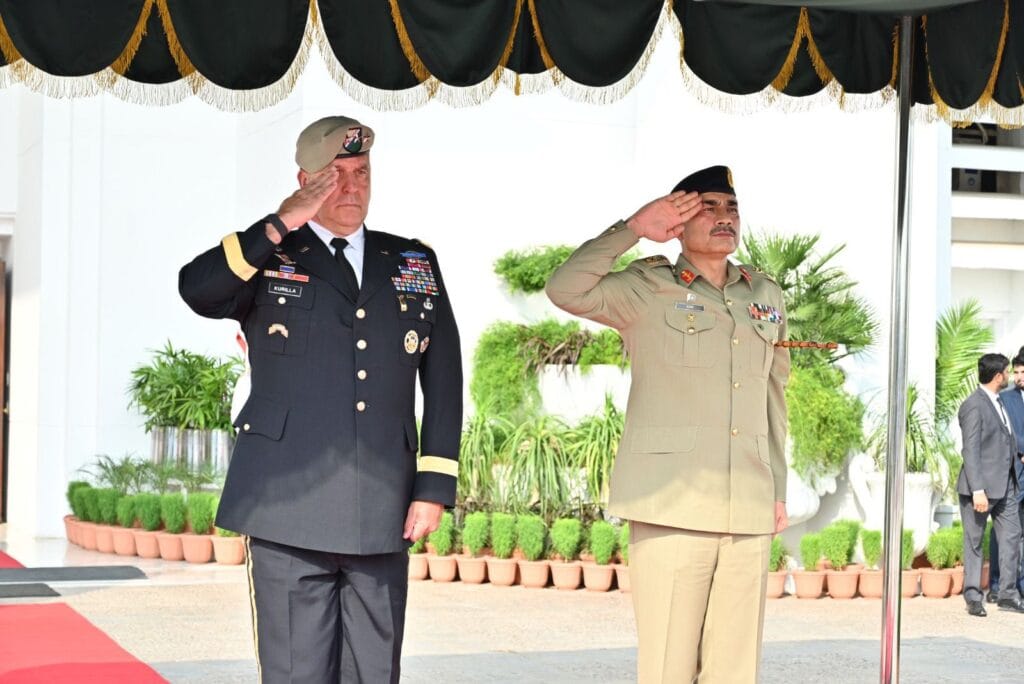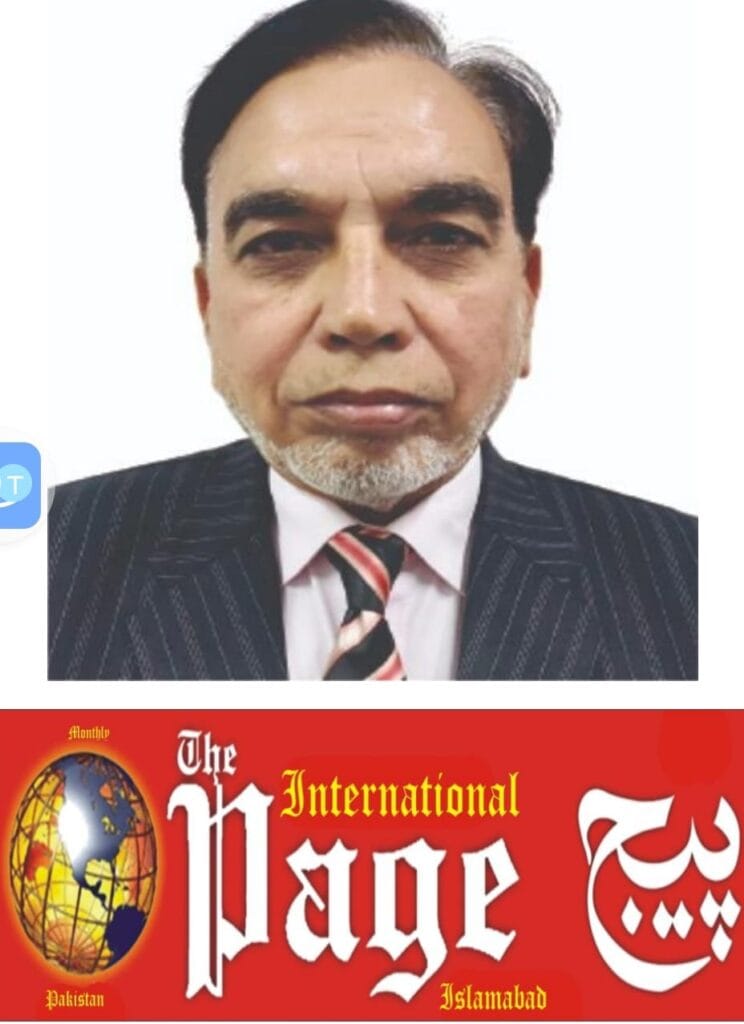
Pakistan confers the **Nishan-e-Imtiaz (Military) second-highest military honor to USA General Michael Kurilla

Rasheed Ahmad Chughtai
www.rachughtai.com
Pakistan’s decision to confer the **Nishan-e-Imtiaz (Military)—its second-highest military honor—on U.S. CENTCOM Commander General Michael Kurilla is a calculated geopolitical maneuver with layered implications. Below is an analysis of its strategic benefits for Pakistan and the nuanced messages sent to global powers, particularly China, Russia, Iran, and Palestine advocates.
**Strategic Advantages for Pakistan**
1. **Reinforcing U.S. Military Ties Amid Economic Strain**:
– Pakistan faces acute economic vulnerability, relying on IMF bailouts (e.g., the recent $3 billion package). By honoring Kurilla—a key architect of U.S.-Pakistan counterterrorism cooperation—Islamabad signals commitment to a “functional partnership” with Washington, potentially unlocking security aid and diplomatic support for debt relief or investment.
– Kurilla’s role in deepening **military-to-military engagement**, joint counterterrorism drills, and intelligence sharing aligns with Pakistan’s need for advanced weaponry and regional legitimacy.
2. **Balancing China Without Alienation**:
– While China remains Pakistan’s primary defense partner (e.g., JF-17 jets, CPEC infrastructure), Islamabad fears over-reliance. This award demonstrates **multi-vector diplomacy**: sustaining U.S. ties as a counterweight to Beijing’s dominance, without abandoning China.
– As one diplomat noted: *“Pakistan is sending a subtle message—it may be close to China, but it still values ties with the US”*.
3. **Legitimizing Regional Security Leadership**:
– The award coincided with Pakistan’s **Regional Chiefs of Defence Staff Conference**, hosting Central Asian states (Kazakhstan, Kyrgyzstan, etc.). Honoring Kurilla amplifies Pakistan’s pitch as a “security integrator” bridging U.S. and Eurasian interests—especially in counterterrorism and stability operations.
4. **Mitigating FATF/Global Scrutiny**:
– Despite exiting FATF’s “grey list” in 2022, Pakistan remains under scrutiny for terror financing (e.g., Indian pressure post-Pahalgam attack). Kurilla’s praise for Pakistan as a *“phenomenal partner in counter-terrorism”* helps Islamabad rebrand globally.
**Messages to Major Powers**
**To China**:
– **Reassurance Amid Rivalry**: Pakistan’s outreach to the U.S. is not a rejection of China but a bid for “strategic agility.” The award signals that Islamabad can manage both relationships without exclusivity.
– **Leverage in CPEC Negotiations**: Demonstrating U.S. ties could pressure Beijing to offer better terms in infrastructure or defense deals.
**To Russia**:
– **Invitation for Pragmatic Alignment**: Russia shares interests with Pakistan in Central Asian stability (e.g., curbing Afghan spillover). Pakistan’s U.S. engagement does not preclude Moscow-Islamabad cooperation, as shown by the regional defense summit.
**To Iran**:
– **Ambiguous Deterrence**: The award risks angering Tehran, given Kurilla’s advocacy for Israeli strikes on Iran and his role in building a U.S.-led “security umbrella” against Iranian “aggression”. However, Pakistan may be betting on shared interests:
– Border security (e.g., combating Baloch militants).
– Avoiding direct confrontation by framing Kurilla’s honor as *bureaucratic necessity* rather than endorsement of his Iran views.
**On Palestine**:
– **Contradictory Signaling**:
– **Negative Perception**: Honoring a general who oversaw U.S. support for Israel’s Gaza campaign undermines Pakistan’s pro-Palestine rhetoric. It risks alienating domestic audiences and Muslim allies (e.g., Iran, Turkey).
– **Damage Control**: Islamabad may compartmentalize:
– Publicly reiterate support for Palestine (e.g., PM Sharif’s pledge to lobby for Gaza aid).
– Argue that Kurilla’s award reflects *military logistics*, not Middle East politics.
– **Risk Calculation**: Pakistan likely prioritizes U.S. military cooperation over ideological consistency, betting that Muslim allies will tolerate pragmatism for economic survival.
**Contradictions and Regional Repercussions**
– **Iran-Pakistan Tensions**: Tehran may view this as tacit U.S.-Israel-Pakistan alignment. Potential fallout includes border skirmishes or proxy support for anti-Pakistan militants.
– **Domestic Backlash**: Islamist parties (e.g., Jamaat-e-Islami) could protest the honor as betrayal of Gaza.
– **India’s Reaction**: New Delhi will spotlight Kurilla’s award to accuse Pakistan of “hypocrisy” in counterterrorism.
**Conclusion: Pakistan’s High-Stakes Gambit**
Pakistan’s award to General Kurilla is **realpolitik at its sharpest**: leveraging military diplomacy to secure economic relief, U.S. goodwill, and regional relevance. While it strains credibility on Palestine and risks Iranian ire, Islamabad calculates that survival hinges on showcasing “geopolitical agility”—balancing China, engaging the U.S., and managing regional rivals. The move underscores a cold truth: in times of crisis, *strategic necessity often trumps ideological consistency*.
> “In an era of transnational threats, deeper military cooperation is paramount.”
> — **Pakistan Army Chief Asim Munir** at the Regional Defense Summit.


Rasheed Ahmad Chughtai
www.rachughtai.com
